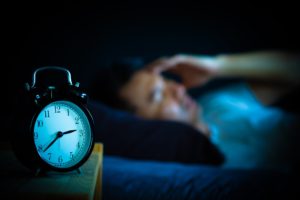
In the short-term, bad sleep can lead to anxiety, irritation, and trouble focusing. In the long-term, it may increase the risk of obesity, high blood pressure, heart disease, diabetes, and may even cut your life short.
There are several factors that can influence the quality of your sleep and whether you stay asleep for the duration of the night. Some of them include:
Age: Sleep interruptions are much more common in older people than younger ones. Many times, older individuals go through natural changes to their sleep-wake cycle. Instead of getting tired at 10 or 11 pm, for example, they begin to get tired at 8 pm. The “biological night” has begun—and it means they will wake up earlier like 4 or 5 am. Even if they fall asleep later, the body is still prompted to wake up early. Of course, you can’t just blame your age!
Lifestyle: Alcohol, eating, napping, and caffeine can all influence sleep. Drinking alcohol within four hours of bedtime, eating within a few hours before, and taking caffeine within a few hours can all make it hard to stay asleep during the night. Aside from potential bathroom wakeups, these things do not put the body and mind in a position to achieve deep sleep. Napping too much, and too close to bedtime, can also make it hard to sleep through the night.
Medications: Certain medications can encourage night-time waking. These include:
- Certain antidepressants
- Beta-blockers for high blood pressure
- Cold remedies with alcohol
- Anti-inflammatories with caffeine
- Corticosteroids
If you’re taking any of these, talk to your doctor about dosing or altering the time of day they are taken.
Underlying Medical Condition: Certain medical conditions can also make it hard to stay awake all night. Some examples are:
- Anxiety or depression
- Enlarged prostate
- Chronic pain
- Neuropathy (tingling)
- Sleep apnea
You can improve your chances of sleeping through the night by listening to your body—going to bed when you’re tired and getting up when you naturally awake, or being tested for any underlying conditions.
Trying to practice good sleep hygiene by getting exercise, sticking to consistent bed and wake times, avoiding screens two hours before bed, and sleeping in a cold, dark room.
Also read:
- Essential oils for sleep: 13 ways to get the best sleep ever
- Yoga for sleep: Simple yoga exercises for restful sleep
- Effects of sleep deprivation